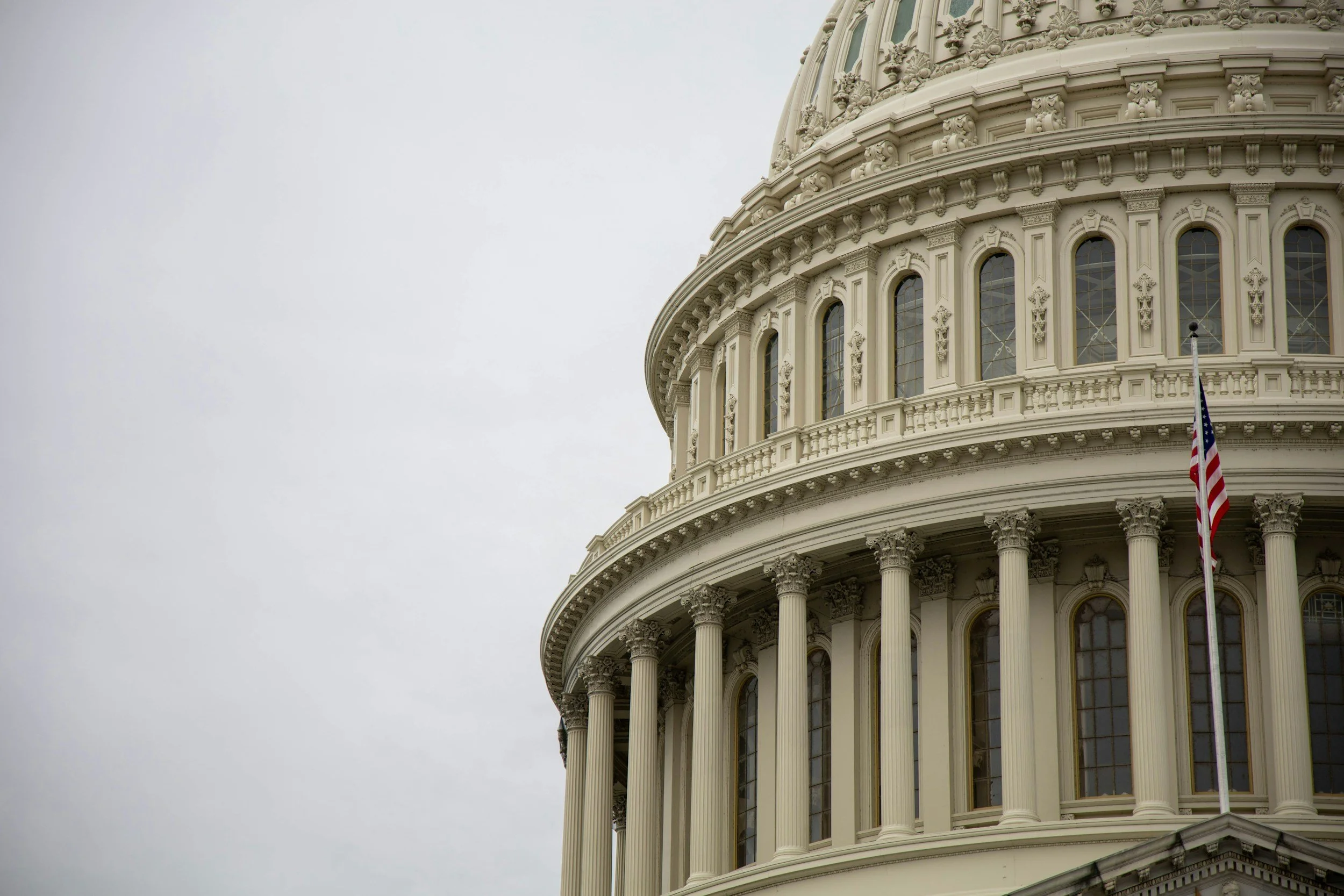Congress pushes government funding question to March 2025.
USCIS Final Rule on H-1B Modernization and F-1 Cap-Gap Flexibility
USCIS Announces Changes to the H-1B Registration Program
USCIS Premium Processing Fee Hike
Pilot Program on Domestic Renewal of H-1B Visas Issued in Canada and India
DOS Announces Revised Visa Interview Waiver Policy
On December 21, 2023, the U.S. Department of State (DOS) announced a revised visa interview waiver policy for certain eligible nonimmigrant visa applicants that is broader in some respects and more limiting in others than the policy that expired December 31, 2023.
The new policy is effective January 1, 2024 and will be in place "until further notice." That means it does not have a set expiration date as have the prior policies, but DOS does plan to review the policy with DHS on an annual basis.
The prior visa interview waiver policy covered first-time F, M, J, H, L, O, P, and Q nonimmigrant visa applicants who were previously issued any type of nonimmigrant visa, even if that prior visa expired more than 48 months ago, as well as applicants who were citizens of a Visa Waiver Program (VWP) country and had previously traveled to the United States in WB or WT status on an ESTA authorization.
The December 21, 2023 DOS visa interview waiver policy replaces this visa-specific approach to cover applicants "applying for any nonimmigrant visa classification," but it also adds the following restrictions:
Prior entry under the VWP under ESTA or having been issued a B visa will not be recognized as a basis for eligibility; and
The prior nonimmigrant visa that is the basis for eligibility cannot have expired more than 48 months ago.
The December 21, 2023 DOS visa interview waiver policy continues the ongoing policy that provides "applicants renewing a nonimmigrant visa in the same classification within 48 months of the prior visa’s expiration date continue to be eligible for interview waiver until further notice."
To be eligible for an interview waiver, applicants must also meet certain criteria, including that they:
apply in their country of nationality or residence.
have never been refused a visa (unless such refusal was overcome or waived).
have no apparent or potential ineligibility.
Consular officers may still require in-person interviews on a case-by-case basis or because of local conditions.
To understand how the revised policy may impact your travel plans, please contact us.
Supreme Court Rules to Keep Optional Practical Training Intact
On October 2, 2023, the U.S. Supreme Court indicated that it will not hear the WashTech case (Washington Alliance of Tech. Workers v. Department of Homeland Security) that challenged the legality of the Department of Homeland Security’s authority to create and maintain its Optional Practical Training (OPT) program for international students (F-1). This puts the case to rest once again, and leaves in place the lower courts' decisions upholding the program. The court’s decision to leave OPT intact resolves a major area of uncertainty for international students and preserves an important tool—applied learning—for student advancement and U.S. competitiveness in the global economy.
USCIS Exempts All Applicants from the Form I-539 Biometric Services Fee
DHS Announces Plan to Grant 5 Year EADs to Applicants for Adjustment, Asylum, Others
October 2023 Visa Bulletin: Some Relief with New Fiscal Year; Backlogs Remain
State Pilots Digital Visa Program at U.S. Embassy Dublin
DOS Announces Expiration of COVID-Era Visa Application Fee Receipts; Appointments Must Be Scheduled by 9/30
On September 1, 2023, the U.S. Department of State announced that all receipts for Machine-Readable Visa (MRV) fees issued before October 1, 2022, will expire on September 30, 2023. Per State, there will be no further extensions of fee validity.
This means that visa applicants must schedule an appointment or submit an interview waiver application before September 30, 2023 to avoid paying a new fee. Note! The interview itself does not need to take place before September 30, but an appointment must be made in the system, even if the event is scheduled months in the future.
State cautions applicants against attempting to change appointment dates after October 1, 2023, because doing so will result in forfeiture of both the original appointment slot and the MRV fee. The applicant would be required to pay a new fee and submit a new application package.
Physical Inspection of Remotely-Verified Form I-9 Documents Required by August 30, 2023; DHS Authorizes Alternative Virtual Procedure for Certain E-Verify Employers
DHS Expands List of Fields Eligible for STEM OPT
The U.S. Department of Homeland Security added eight fields of study to the latest revision of its STEM (science, technology, engineering, and mathematics) Designated Degree Program List on July 12. Among the new fields are landscape architecture; institutional research; mechatronics, robotics, and automation engineering technology/technician; composite materials technology/technician; linguistics and computer science; developmental and adolescent psychology; geospatial intelligence; and demography and population studies. Full descriptions of these fields can be found in the Federal Register notice.
International students who earn degrees in fields on the list qualify for the STEM Optional Practical Training (OPT) program, which allows F-1 students to work in the United States for 3 years instead of the 1 year allowed under the standard OPT program. The STEM OPT list was last expanded in January 2022, when 22 fields were added. Notably, the DHS STEM OPT Designated Degree Program List is an exclusive list: CIP codes that are not on this list are not eligible for STEM OPT.
There is an annual deadline of August 1 for interested parties to nominate additional CIP codes for the DHS STEM Designated Degree Program List. The next annual deadline is August 1, 2023.
USCIS Announces June 2023 Phase-In of Premium Processing for Changes of Status to F, M, J Status
USCIS Extends Suspension of Biometrics Requirement for H, L, E Dependents Through September
USCIS has extended the temporary suspension of the biometrics submission requirement for certain applicants filing Form I-539, Application to Extend/Change Nonimmigrant Status, requesting an extension of stay in or change of status to H-4, L-2, or E nonimmigrant status. The previously announced suspension, which was initially in place until May 17, 2023, has been extended through September 30, 2023. The Service retains discretion, on a case-by-case basis, to require biometrics for any applicant, and applicants may be scheduled for an application support center appointment to submit biometrics. USCIS plans on establishing a permanent biometrics exemption for all Form I-539 applicants in the coming months.
U.S. Department of State Raises Visa Processing Fees Effective May 30
A new regulation from the U.S. Department of State (DOS) will raise key visa processing fees, effective May 30, 2023. For example, the Machine Readable Visa (MRV) fee for F-1, J-1, and other non-petition-based visas rises 15.6 percent, from $160 to $185, and the MRV fee for petition-based categories, such as H-1B and O visas, rises 7.9 percent, from $190 to $$205. The final rule, published on March 28, 2023, raised most visa and border crossing card fees, but not as much as in the proposed rule, and the rule does maintain the current INA 212(e) 2-year home residence waiver application fee at $120.
Premium Processing Expands to F-1 Students' I-765s Today, March 6, with Additional Expansion to Follow
Bloomberg News Reports State Department Plans Pilot for Domestic Visa Renewal
Bloomberg News reported on February 9, 2023, that the U.S. State Department will launch a pilot program later this year offering visa renewal options in the US for H-1B specialty occupation workers and other temporary visa holders who are currently required to travel abroad.
Reestablishing the practice of stateside visa renewals, which were discontinued in 2004, will save those applicants from having to leave the country, and will reduce the workload of consular offices abroad, Julie Stufft, deputy assistant secretary for visa services in the Bureau of Consular Affairs, told Bloomberg Law in an interview.
A stateside renewal process would be immensely beneficial for beneficiaries impacted by numerous consular closures and months-long wait times for visa interviews.
DHS Announces Parole Process for Cubans, Haitians, Nicaraguans and Venezuelans
The Department of Homeland Security (DHS) has announced a new process under which citizens of Cuba, Haiti, Nicaragua, and Venezuela, along with their immediate family members, can request to come to the United States. Under the new process, qualified beneficiaries who are outside of the United States and do not have U.S. entry documents may be considered on a case-by-case basis for advanced authorization to travel and a temporary period of parole for up to two years for urgent humanitarian reasons or significant public benefit.
To qualify for these benefits, eligible beneficiaries must meet all the following requirements:
Be outside of the United States;
Be a citizen of Cuba, Haiti, Nicaragua, or Venezuela; or someone who is the spouse, common-law partner, and/or unmarried child under the age of 21 of a citizen of such countries, and who is traveling alongside the citizen;
Have a U.S. based supporter that has filed a Form I-134A on their behalf that USCIS has vetted and confirmed;
Have a valid and unexpired passport;
·Provide for their own commercial travel to an air U.S. Point of Entry and final U.S. destination;
Comply with all additional requirements, including vaccination requirements and public health guidelines;
Show that a grant of parole is warranted.
Please note that citizens of the above-mentioned countries will be ineligible to apply for these new processes if they:
Are dual nationals, permanent residents, or refugees of another country unless DHS has a similar parole process for the other country’s nationals. This requirement does NOT apply to immediate family members (spouse, common-law partner, or unmarried child under the age of 21) of an eligible citizen of Cuba, Haiti, Nicaragua, or Venezuela with whom they are traveling.
·Have been ordered removed from the U.S. within the past five years or are subject to a bar of inadmissibility based on a prior removal order.
Have crossed irregularly into the United States, after the date the process was announced (for Venezuelans after October 19, 2022, and for Cubans, Haitians and Nicaraguans after January 9, 2023).
Have irregularly crossed the Mexican or Panamanian border after the date the process was announced (for Venezuelans after October 19, 2022, and for Cubans, Haitians and Nicaraguans after January 9, 2023).
Are under 18 and not traveling through this process with a parent or legal guardian, and as a result the CBP officer would determine to be an unaccompanied child.
For more information about this process, we encourage you to visit USCIS’s webpage as well as USCIS’s webpage with frequently asked questions.












